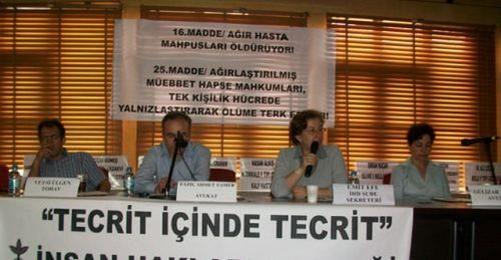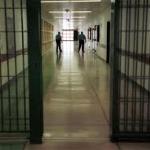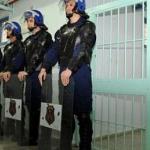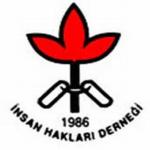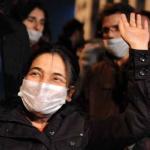"Isolation within Isolation" was the title of a meeting organized by the Prison Commission of the Human Rights Association (İHD) Istanbul Branch on Sunday (29 May). The focal point of the meeting was laid on the effect of articles 16 and 25 of the Criminal Enforcement Law (CİK) on the living conditions of convicts serving an aggravated life sentence and diseased convicts.
Prof. Şebnem Korur Fincancı, Forensic Medicine Expert and President of the Turkish Human Rights Foundation (TİHV) lead through parts of the meeting as well as lawyers Fazıl Ahmet Tamer and Gülizar Tuncer, İHD Istanbul Branch Secretary Ümit Efe and Veysi Ülgen from the Society and Law Research Foundation (TOHAV).
The discoursers drew attention to the conditions of the aggravated life sentence that was installed in 2002 after the abolishment of the death penalty. Amendments made in 2005 limited the duration of fresh air for prisoners serving an aggravated life sentence to one hour per day. The right to talk to the other prisoners was denied; the permission to see three persons who were not relatives was lifted. Hence, convicts serving an aggravated life sentence are living in a single cell of eight square metres for 23 hours a day.
As the first speaker, Fincancı mentioned problems regarding the Forensic Medicine Institute being considered as an expert body. She underlined that Article 16 of the CİK rendered the possibility for a suspension of punishment for diseased convicts impossible. According to the article, the punishment may only be postponed upon a report obtained from or approved by the Forensic Medicine Institute. Fincancı declared that hundreds of seriously ill convicts are waiting for medical treatment in prison because reports are being delayed or blocked.
"Examination through barred window"
TOHAV representative Ülgen indicated that many convicts develop severe diseases like cancer or suffer from a stress disorder caused by a trauma by reason of the condition of isolation. Ülgen underlined that psychiatric examinations were being carried out through the barred window in the door without the convict's leaving the cell.
The participants agreed on the urgent demand to deprive the Forensic Medicine Institute of its status of an expert body and said that reports issued by hospitals and lawyers had to be taken into account. About 200 seriously ill convicts are currently being incarcerated in Turkish prisons, it was announced.
İHD Istanbul Branch Secretary Efe quoted the cases of convicts Osman Kezder, Abdullah Akçay, Basri Vardar and Güler Zere as examples for this application. He recalled that these convicts had been released only to die and that they had not received proper medical treatment. The convicts taken to hospital under compulsion due to the "Triple Protocol" can only be examined in the presence of a prison official and without having removed their hand-cuffs, Efe explained.
Lawyer Tuncer added that the "Istanbul Protocol" approved by the United Nations (UN) was not being applied and that disciplinary penalties given to the convicts would delay the date of their release that was defined by law.
Tuncer noted that possible measures were limited and that most of the applications submitted to execution judgeships or courts did not yield any results. The lawyer claimed that the European Court of Human Rights (ECHR) was not independent of political decisions and state policies. "The duration of the sentence has expired anyways by the time these courts will have achieved a result", Tuncer criticized.
"Legal offenders serve 30 years in prison with an aggravated life sentence; for organized crimes it is 36 years. Political convicts remain in prison until the end of their life. The law prevents the right to a conditional release", Tuncer said.
The following key points were defined at the meeting to lift rights violations caused by the CİK:
* Abolishing of Articles 16 and 25 that
- order isolation cells for convicts who serve an aggravated life sentence
- allow visits by first-degree relatives only
- limit visits to once in two weeks
- restrict fresh air to one hour per day
- deny permission for the release of fatally ill prisoners
- prohibit communication with other inmates. (AS/VK)





